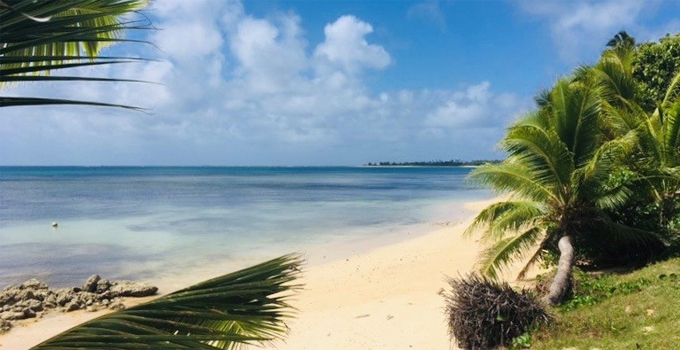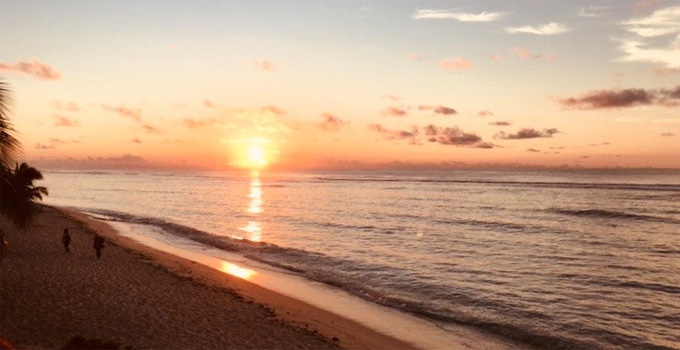THOUGHT LEADERSHIP
Keeping international projects moving, even when we’re grounded
With no set date for when life will return to usual after COVID-19, nor any guarantee of whether life will ever return to what we previously knew as ‘usual’ at all, there are very few areas in the consulting life in which we can simply say ‘we’ll wait until this is all over’. Life, and projects, must go on.
Although we can’t avoid the disruption and uncertainty that the coronavirus has unleashed, we can increase our resilience and agility. We can also embrace opportunities to innovate and to create new ways (or reinvigorate old ways) to achieve our goals.
Here, Entura’s Environment and Planning team continue to apply their proactive approach to keeping projects alive in the current circumstances, and explain how they are continuing their activities on two international projects despite the travel restrictions that are making it impossible to visit the project sites.
Old ways for new times – Engaging communities in Tonga
For many countries across the globe, the immediate challenge is building resilience to fight through the pandemic. However, for some small island nations that have managed to stay out of the virus’s path so far, such as Tonga and the Federated States of Micronesia, the concept of resilience has a broader context.
Climate resilience is a core objective, as these nations are feeling the increasing impacts of rising sea levels and more frequent and intense weather events. In this context, robust power infrastructure that is suited to extreme weather is one component of greater resilience, as is transitioning from diesel dependence to higher levels of renewables, which builds greater security of energy supply at a lower longer term financial and environmental cost. More access to stable, reliable and clean electricity is also critical for the health, wellbeing and education of local communities, and is the foundation for economic development. Entura has been fortunate to be involved in some meaningful resilience-building projects in the Pacific, supporting many of our neighbouring nations to implement sustainable energy solutions.
However, with a current project in Tonga, coronavirus has thrown our travel plans into disarray. The challenge we’re facing now is how to continue the planning, engagement and environmental activities required by such a project when we can’t physically get there, can’t hold town hall meetings and can’t host information sessions with locals.
While the pandemic is forcing many practitioners to extend and expand their use of digital forms of engagement (such as websites, Facebook, Twitter, ‘Bang the Table’ or moderated ZOOM-based focus groups), some projects are located in communities that do not enjoy easily available or reliable internet or telephone access. In these cases, such as our project in Tonga, we need to think differently about ways to facilitate engagement from a distance.
For the Tongan project, we’re heading back to basics: the tried and tested solution of providing information on paper. Working with the local project management unit, along with our client, we are designing and implementing a newsletter to be printed in the local language and distributed to regulators and communities. It will provide snapshots of the project, latest updates on scheduling, and will even feature some interviews to provide greater coverage of ongoing community engagement.
As the construction company for the project is, like us, unable to travel internationally at the moment, construction is yet to take place. Nevertheless, we are continuing to facilitate all aspects of the project remotely, such as lining up approvals with regulators, and guiding engagement on the ground. With the help of our Tongan counterparts, we can still keep information and updates flowing despite the physical limitations on our involvement ‘in the flesh’.
Buying time and building partnerships in South-East Asia
Just as COVID-19 started closing borders and halting international travel, our team was reaching the culmination of many weeks planning an impact assessment for a large infrastructure project in South-East Asia. Our discipline experts were about to book their tickets and embark on the journey to site to survey environmental and social impacts. However, we placed the site surveys on hold indefinitely to comply with travel restrictions, ensure the safety of our people and contractors, and not risk spreading the virus in remote communities.
This abrupt shift in our plans afforded us the chance to take a breath, reflect on the project and its broader risks, and then develop an alternative plan to keep progressing aspects of the work that could be done remotely. We are now proactively undertaking desktop approval studies and initial public consultation from our desks. We’re ‘buying time’ now to save time later.
When travel restrictions lift and it is once again safe to physically attend the site, we will be ahead of where we would have been pre-COVID-19. We will better understand potential issues and have a more thorough insight into the local and community context. We’ll have already carefully planned our field studies with more targeted approaches. We’ll be better prepared for stakeholder questions that may arise, and will have already considered ways in which the project might manage challenges and risks going forward.
But there’s something more that we’re seeing emerge in this COVID-19 period. We’re finding that the shared need to adapt to trying times and the mutual desire to find workable solutions is strengthening our relationships with our clients, building even greater trust and collaboration, and it is leading to ‘partnership’ relationships that transcend the more common transactional paradigm of client–consultant. We are working closely together to openly discuss issues and options, and to determine how best to manage emerging challenges to benefit the project.
Would this have happened without COVID-19? Perhaps – but under the usual pressure of timelines, expectations, standardised processes and the drive for efficiency, there isn’t often the same flexibility or space to build different qualities and layers in our relationships or to consider potential issues quite so broadly or creatively.
Will the project benefit from the changes made necessary by COVID-19? Probably – despite the difficulties caused by the limitations on travel, it can only be positive to have had the chance to take the time to more thoroughly and holistically consider all the issues and risks before we proceed to field studies and stakeholder engagement.
Will timelines change significantly because of COVID-19? Not necessarily – we will inevitably lose some months by not being able to go into the field, but we will have ‘bought’ some time by compiling a good portion of the project documentation prior to the field studies, so that the time required in subsequent stages is lessened.
Wherever in the Indo-Pacific region our international projects are located, our clients can be confident that we’re seeking all the ways we can – new or old – to keep making progress in these uncertain and complicated times … and to come through them stronger together.
If you would like to discuss how Entura can help you with your environmental or planning project, please contact us.
13 May, 2020








